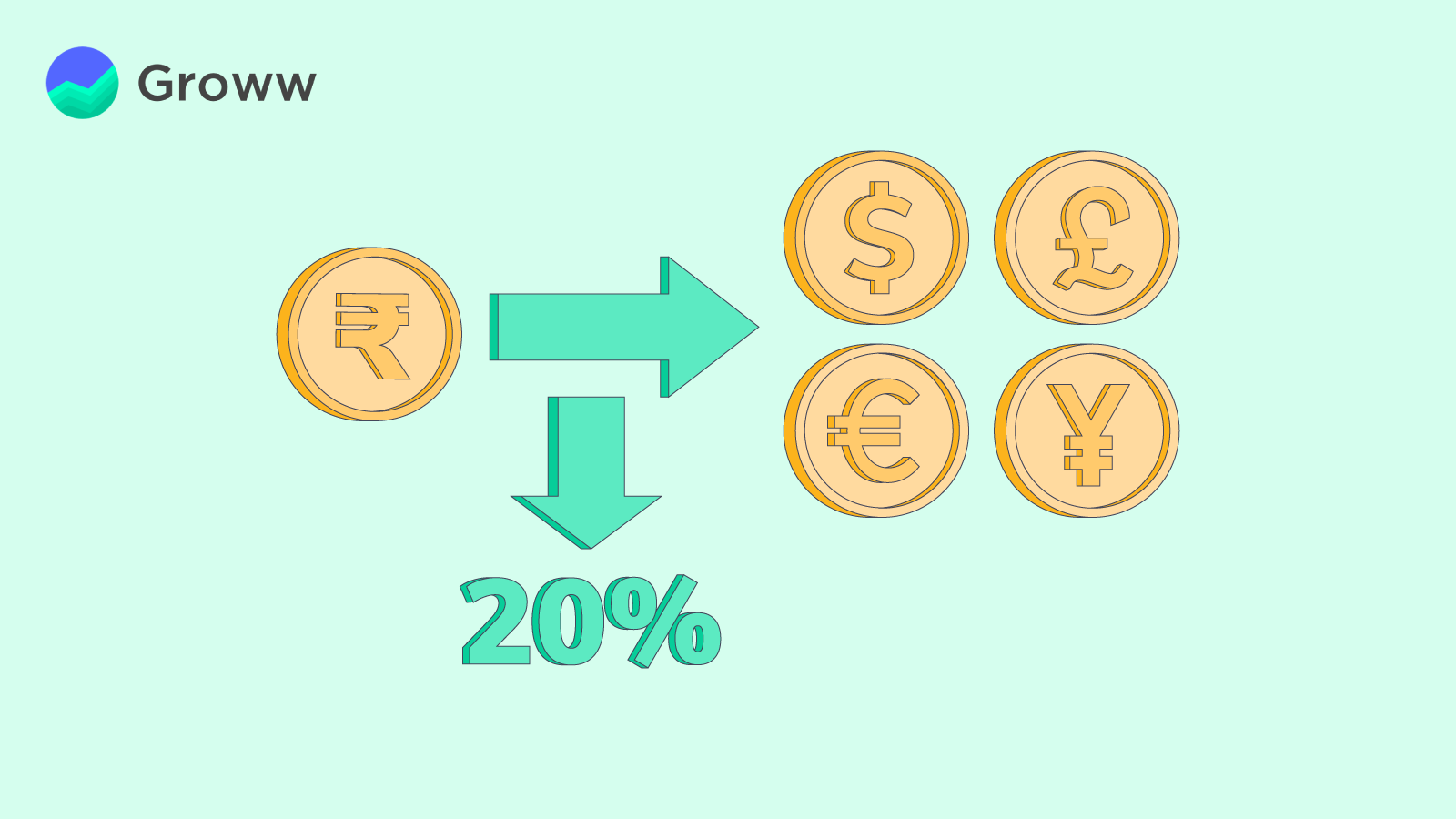Everything You Need to Know About 20% TCS on Foreign Remittance Transactions under LRS

The Union Budget of 2023 was introduced with a bunch of new policies, several social sector initiatives, and a set of new regulations to improve the Indian ecosystem. The budget became talk-of-the-town as tons of fresh policies were proposed that are likely to enhance the Indian industrial, rural and urban development.
While the significant changes made in the income tax slabs were a highlight of the Amrit Kaal Budget 2023, another noteworthy policy introduced was the 20% TCS on Foreign Remittance under the Liberalized Remittance Scheme.
Understanding TCS in Foreign Remittance Transactions
TCS, short for, Tax Collected at Source, is the type of income tax collected by the seller of selected goods and services from the buyer.
In the context of Foreign Remittance Transactions, this kind of tax can be collected from you when you send money abroad.
Here, it is crucial to note that sending money doesn’t only mean sending it to someone. It could even imply touring abroad, shopping, investing abroad, purchasing assets, etc.
The Liberalised Remittance Scheme (LRS) can help you do international transactions with great ease.
The New Update About Tax on Foreign Remittance
Before the Budget 2023, for foreign equity investments under the Liberalised Remittance Scheme, the TCS was levied at the rate of 5% for remittances exceeding Rs 7 Lakh. However, in the budget, Nirmala Sitharaman, the Finance Minister of India, has suggested changes in the TCS structure.
Increased TCS rates will apply from 1st October 2023, for foreign remittances for Foreign equity investment under LRS and the purchase of overseas tour programs, the TCS rates will increase to 20% with a threshold limit of 7 lakh from the formerly applicable rate of 5% above 7 lakh.
|
Cases |
Type of Remittance |
Current Rate of TCS |
New Rate wef 1st October 2023 |
|
Case 1 |
For the purpose of education (education loan from any financial institution) |
0.5% of the amount or the aggregate of the amounts in excess of Rs 7 Lakh |
|
|
Case 2 |
For the purpose of education, other than use case 1 (mentioned above) |
5% of the amount or the aggregate of the amounts in excess of Rs. 7 Lakh |
|
|
Case 3 |
Overseas Tour Package |
5% without any threshold limit |
|
|
Case 4 |
Any other case |
5% of the amount or the aggregate of the amounts in excess of Rs. 7 Lakh |
|
How to Get Tax Benefits from the Tax Remittance under LRS
If you want to adjust your overall tax liability, you can do so by adjusting the sum deducted by the banks as Tax Collected at Source (TCS).
It can be claimed as an income tax refund. Alternatively, you can avail of credit while filing the ITR/calculating your advance taxes.
How to Adjust this TCS in IT Filings?
Step 1: You will be required to add an investment amount from your bank to the Groww USD Balance.
Step 2: The bank will then collect TCS on such investment value.
Step 3: You can then make an investment from such an amount in the US Stocks.
Step 4: The bank will deposit the collected TCS to the Income Tax Department of India. Such collected TCS will be reflected quarterly in Form 26AS.
You can view your Form 26AS after logging into the Income Tax portal using your login credentials.
Step 5: Once you are filing Income Tax returns for the assessment year, such collected TCS will automatically reflect as TCS paid to the Income Tax Department. Such TCS can be adjusted with Income Tax payable.
|
An Interesting Fact to Know Tax Collected at Source only applies to foreign outward remittances. It does not apply to foreign inward remittances (money that is sent to India). |
Summing Up
The increased TCS rates will be levied from 1st October 2023. Though its impact will substantially affect the economy, its actual consequence can be computed once it comes into effect.
Hence, if you fall under any of the cases mentioned above, be set to pay off your tax liabilities as per the new regulation.
|
You may also be interested to know |
|
|
1. |
What is Taxpayer Identification Number (TIN) |
|
2. |
How to Pay Income Tax Online with Challan 280 |
|
3. |
What is Tax to GDP Ratio |
|
4. |
What is Non Tax Revenue |
|
5. |
Difference Between Tax Evasion and Tax Avoidance |